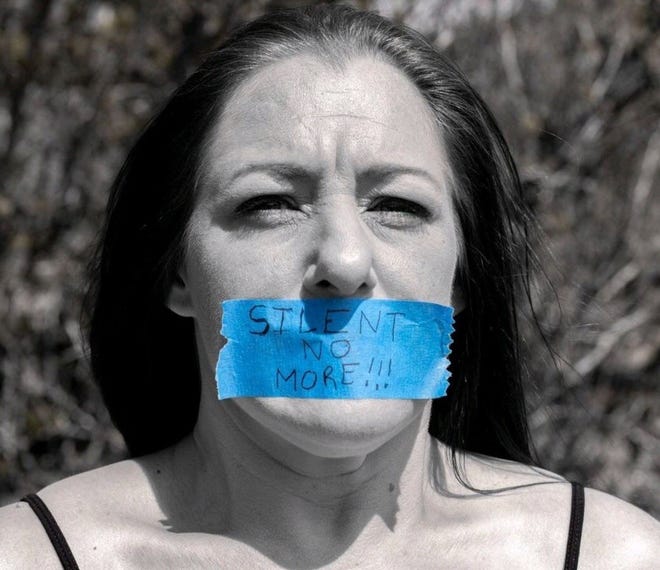In 2019, the Houston Chronicle ran a five-part series called “Abuse of Faith” that detailed more than 15 years’ worth of sex abuse allegations against church leaders at Southern Baptist churches. Perhaps just as bad as the 220 sex crime convictions and 700 victims outlined in the series was the revelation that the Southern Baptist Convention (SBC) had known about many of these abusers for years. In fact, SBC leadership had maintained a secret list of clergy, youth pastors, deacons, and other church employees who had been convicted for or accused of sexual abuse. The potential legal liability for sexual assault and personal injury that the convention faces because of this behavior is enormous.
Members of both the wider public and SBC churches were shocked to learn that leaders who were supposed to ‘protect their flock’ had instead subjected an unknown number of individuals, many of them children, to sexual abuse. In some cases, clergy who had already been accused or convicted of abuse in criminal courts were allowed to continue their work at other churches. As a result of the Houston Chronicle expose, a third-party sex abuse task force was formed to review how the convention had handled abuse in the past and what policies needed to change for the future.
Inside the Convention: How Abuse Allegations Affect Church Membership
According to an NPR report with one of the “Abuse of Faith” writers, survivors of sexual abuse in the SBC had faced discrimination and disparagement when they came forward to report abuse. Victims described a range of negative reactions, “from being called an evil doer to a satanic distraction from evangelism to…[being] called as reprehensible as a sex criminal by a top leader of the Southern Baptist Convention.” Many victims and their families left the congregation after these painful experiences. Some victims have noted that they now avoid or eschew organized churches.
Like many churches, the SBC has also faced a steady decline in membership over the last 20 years. In 2006, the congregation boasted 16.3 million members. After a congregational census in 2020, the SBC revealed that its membership had fallen to 14 million worldwide. While some membership loss can be attributed to a general decline in religious affiliation in American society and the effects of the COVID-19 pandemic, there is no doubt that some members left the congregation after learning about the decades-long sexual abuse scandal.
Public Fallout Around Abusive Church Leaders
For Southern Baptist leaders, criticism from departing clergy and from outside the congregation has also been a devastating force. Major news outlets around the United States and Europe have covered the abuse crisis. Some prominent Southern Baptist leaders have quit the church and moved to other denominations. One of the most notable is Russell Moore, a preacher and ethicist whose repeated calls for an investigation were ignored by SBC leaders. Best-selling author Beth Moore left the congregation before the scandal broke but has also spoken candidly with media outlets about her long-running concerns about the Convention’s Executive Council.

Of course, the SBC isn’t the first religious organization to face public scrutiny after revelations that leadership protected known sexual abusers. The Roman Catholic Church faced a significant sexual abuse scandal in the 1990s and 2000s that cost the church public prestige and millions of dollars. Southern Baptist churches, which have a much looser structure than the Roman Catholic Church, may never recover from the scandal publicly or within their own congregations.
The Legal Ramifications of Abuse by Church Leaders
One of the ironies found in the final report on abuse in Southern Baptist churches was that avoiding legal liability was a primary driving factor in keeping the offender list secret. For more than 15 years, the church’s Executive Council (EC) had been advised to keep abuse allegations and a database of known abusers a secret even from other high-ranking leadership members because of legal liability. No one will ever know the exact thinking of the lawyers advocating this approach. Still, no doubt, failing to act on credible evidence of abuse also created legal liability for the Convention.
In a recent case, the Tennessee Court of Appeals allowed three men who alleged that a pastor had abused them in Memphis more than 20 years earlier to sue the church for forcing a cover-up and failing to protect parishioners from predators. This case does not bode well for the SBC, which will likely face personal injury and negligence lawsuits from survivors of abusive leaders who have not yet come forward. Because the SBC maintained a list of offenders with convictions or credible allegations, the Convention will be legally hard-pressed to argue that it had no legal duty to protect its members from known abusers.
Where Now? How the SBC Can Address Its Future
As the church’s sexual abuse scandal has unfolded, many everyday members of Southern Baptist churches wonder if the organization will ever recover. Approving a task force to investigate the allegations and present a course of action was an obvious starting point. Still, the SBC will need to do a great deal of work to rebuild its reputation. Providing truthful information to law enforcement agencies and courts moving forward is essential if the SBC wants to regain public trust.
Some of the other changes the Sexual Abuse Task Force has suggested include
- creating an abuse reform task force
- hiring an assault and abuse expert to field complaints from congregants,
- providing sexual assault and harassment training to all employees, clergy, and volunteers, and
- implementing anti-abuse and survivor care training courses in Southern Baptist seminaries.
Ensuring that victims are supported in court should also be vital to SBC leadership as it attempts to recover from this crisis. Southern Baptist churches must learn to listen to victims and quickly act to remove clergy, employees, and volunteers who have been legitimately accused or found guilty of sexual abuse. Unless the SBC makes significant changes, the denomination will face ongoing legal issues and reputational damage in the public eye.

